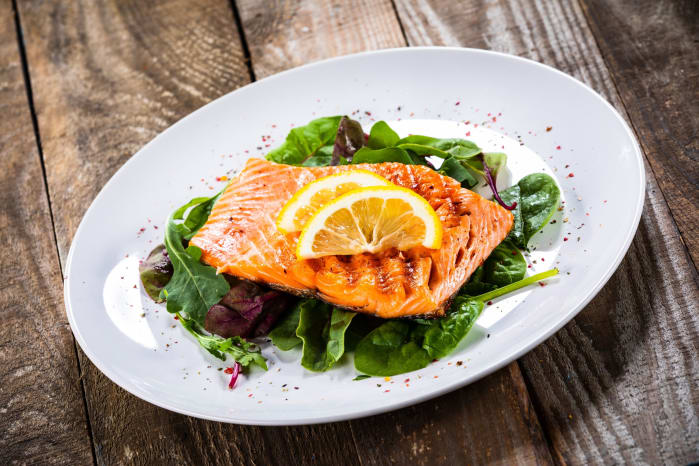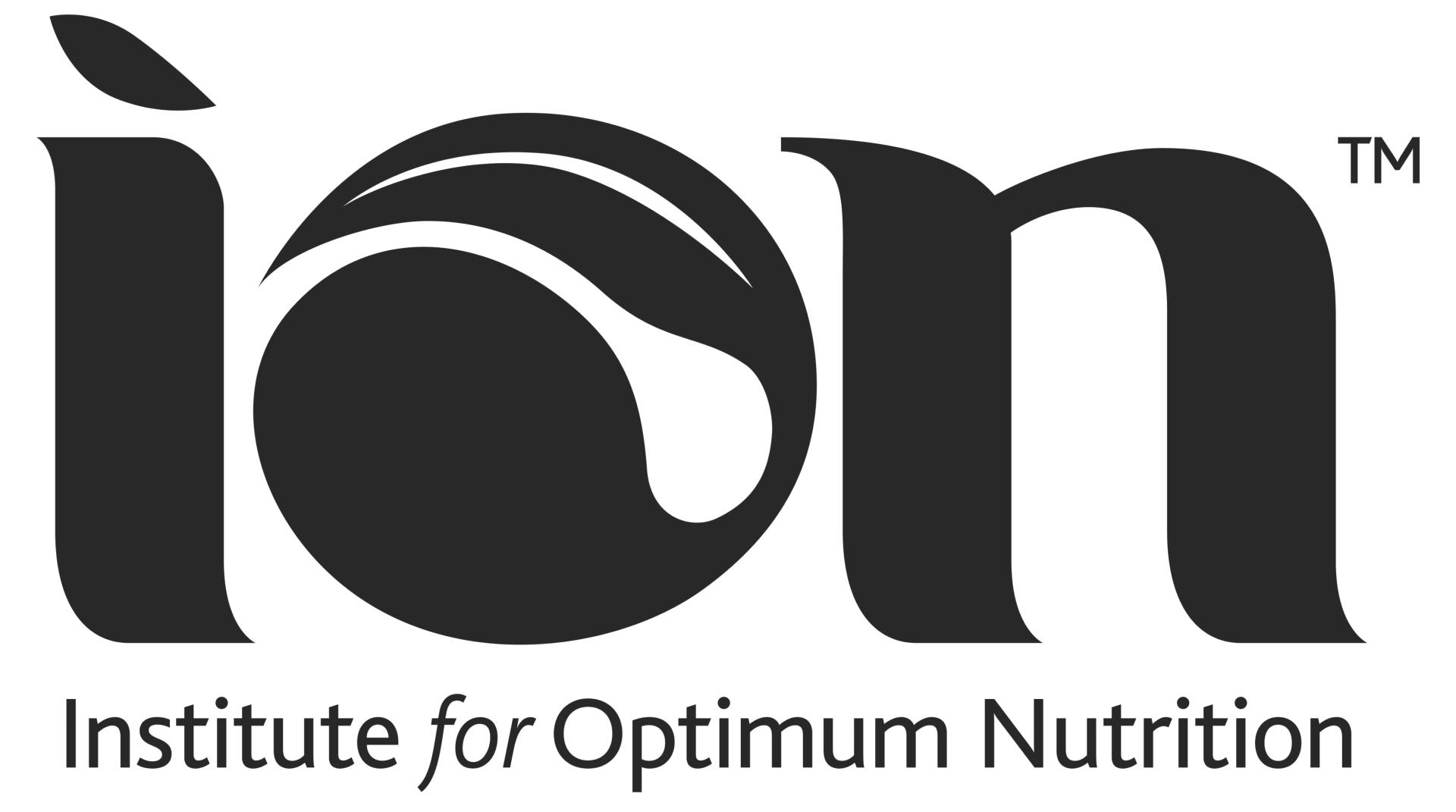Mental health
According to NHS Digital figures, one in six people in the UK experiences common mental health problems during an average week. What’s more, two thirds of UK adults (69%) report feeling worried or somewhat worried about the effect that COVID-19 is having on their life.
Whatever the symptoms, it’s important to tackle them or seek help. Looking to nutrition and lifestyle is a great place to start, but it’s important to discuss the risks and benefits with a registered nutritional therapist or your GP. Never stop taking prescribed medication without consulting your GP.
Here are some smart strategies to get you started.
Eat for gut health
Diverse gut bacteria has been linked positively to mental health. Several types of ‘good’ bacteria are thought to interact with the nervous system and play a key role in mood management.
Some microbes even help with production of dopamine, the so-called ‘happy hormone‘. Probiotic foods, which are generally fermented foods such as live yoghurt, provide beneficial bacteria that can help support digestive health and regulate the immune system. Some studies have also found them to be useful in tackling anxiety.
Scientists call these “psychobiotics” — probiotics that can be used to positively impact mental health by altering the way the gut communicates with the brain. It’s thought that in depression, certain messages don’t get through from the gut to the brain.
In one study, researchers who noted a correlation between imbalances in gut bacteria and disorders of the central nervous system found improved mental health in healthy volunteers who consumed probiotic yoghurt and supplements for six weeks. However, whilst acknowledging that the study showed promise, the authors recommended that further studies into psychobiotics were needed to explore the findings further.
Good sources of probiotics include dairy produce such as yoghurt with live cultures, buttermilk and kefir.
Other fermented foods that are a good source of probiotics include tempeh, natto and miso made from soya beans; sauerkraut and kimchi from cabbage; plus kombucha from tea.
Eating foods that are rich in fibre also helps to feed your beneficial bacteria, which is another reason to make sure you are including vegetables, fruit, legumes and wholegrains in your diet.
Eat 10-a-day

Several studies have linked a colourful, varied diet that includes vegetables, fruit, wholegrains and omega-3 fatty acids with good mental health.
The standard western diet, however, including highly–processed foods, low levels of vegetables and fruit, and high levels of omega-6 fatty acids, has been linked with low mental health.
Because high levels of general inflammation are often seen among patients with depression, it’s also thought that the anti-inflammatory and antioxidant properties of a plant-rich diet can help to support mental wellbeing.
SMASH it

In one study, researchers set out to see whether a plant-rich, Mediterranean style diet could improve mental health. Their hypothesis was that low levels of omega-3 fatty acids, higher levels of systemic inflammation in the body and nutritionally poor diets were common features in poorer mental health.
Participants were given food hampers, omega-3 supplements and cookery workshops, and were asked to include fruit, veg, legumes, seeds, nuts, olives, olive oil, wholegrains and fish in their diet, and to restrict red meat, processed foods and confectionery. The result was a direct correlation between better diet and improved mental health, which was still evident after six months.
One of the best ways to increase dietary omega-3 levels is by eating oily fish, with the acronym SMASH (salmon, mackerel, anchovies, sardines and herring) as a helpful way to remember which varieties to eat. Seaweed (in sushi), spirulina (add to smoothies), flax, chia and hemp seeds (sprinkled over yoghurt for breakfast) as well as walnuts and edamame beans are good sources for non-meat eaters.
Anyone taking blood thinning medication should avoid taking omega-3 supplements. A pharmacist, GP or registered nutritional therapist can advise on contraindications with medication you may be taking.
Vitamins and minerals for mental health
B vitamins are essential for our mental health, particularly B12. Because B12 is only naturally available in animal products, vegans are at greater risk of being deficient and so should take in supplements and fortified foods.
Zinc is also a nutrient that has produced interesting results. One study found that healthy young females given zinc plus multivitamin supplements reported a greater reduction in depression scores than those who only took a multivitamin. This could be due to zinc’s role in regulating chemical messengers (neurotransmitters). However, this was a controlled study and supplements are not always recommended — the NHS advises that high levels of zinc reduce the amount of copper that the body can absorb, which can lead to anaemia and weakening of the bones.
Before considering supplements, look to diet to provide what you need. Good sources of zinc include cashew nuts, dark chicken meat, legumes including chickpeas and lentils, seafood such as crab and lobster, wholegrains and meat (organic, grass-fed if possible).
Another important ‘feel good’ mineral is magnesium, which helps to support a healthy ‘sleep/wake’ cycle and to regulate mood. Dark green leafy veg, beans and peas, seeds, nuts and wholegrains are all good sources of this relaxation-inducing mineral.
Vitamin D is also important for healthy brain function. Sunlight is the best source but it can also be obtained through SMASH fish, some types of mushroom, egg yolks and some fortified foods.
Serotonin
Eating food rich in tryptophan can improve levels of serotonin — a neurotransmitter believed to be important for regulating mood — which, in turn, may help to regulate sleep, improve energy and mood.
An essential amino acid, tryptophan has to come from diet because the human body cannot produce it. Sources include turkey, chicken, salmon, eggs, spinach, nuts, seeds and tofu.
Nutritional deficiencies caused by poor digestion, overgrowth of ‘bad’ bacteria, under- or over-weight, stress, poor sleep and food intolerances are just some of the things that can make us feel below par. However, it is also important to consult your GP, particularly if you are taking prescribed medication.
The Brain Bio Centre at the Institute for Optimum Nutrition combines nutrition and health science to support mental health concerns. Click here to find out more or book a free consultation with a registered nutritional therapist






